

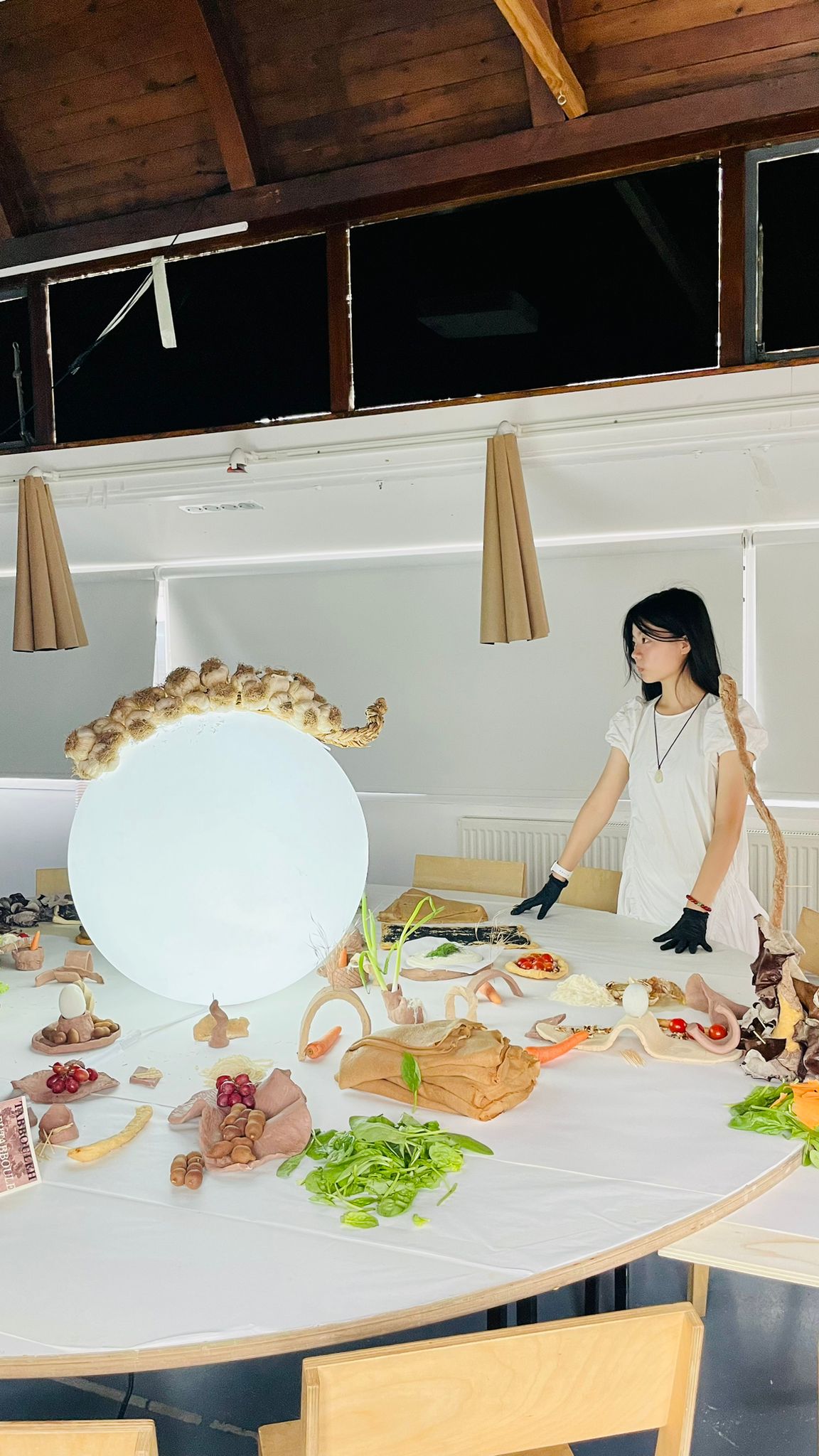

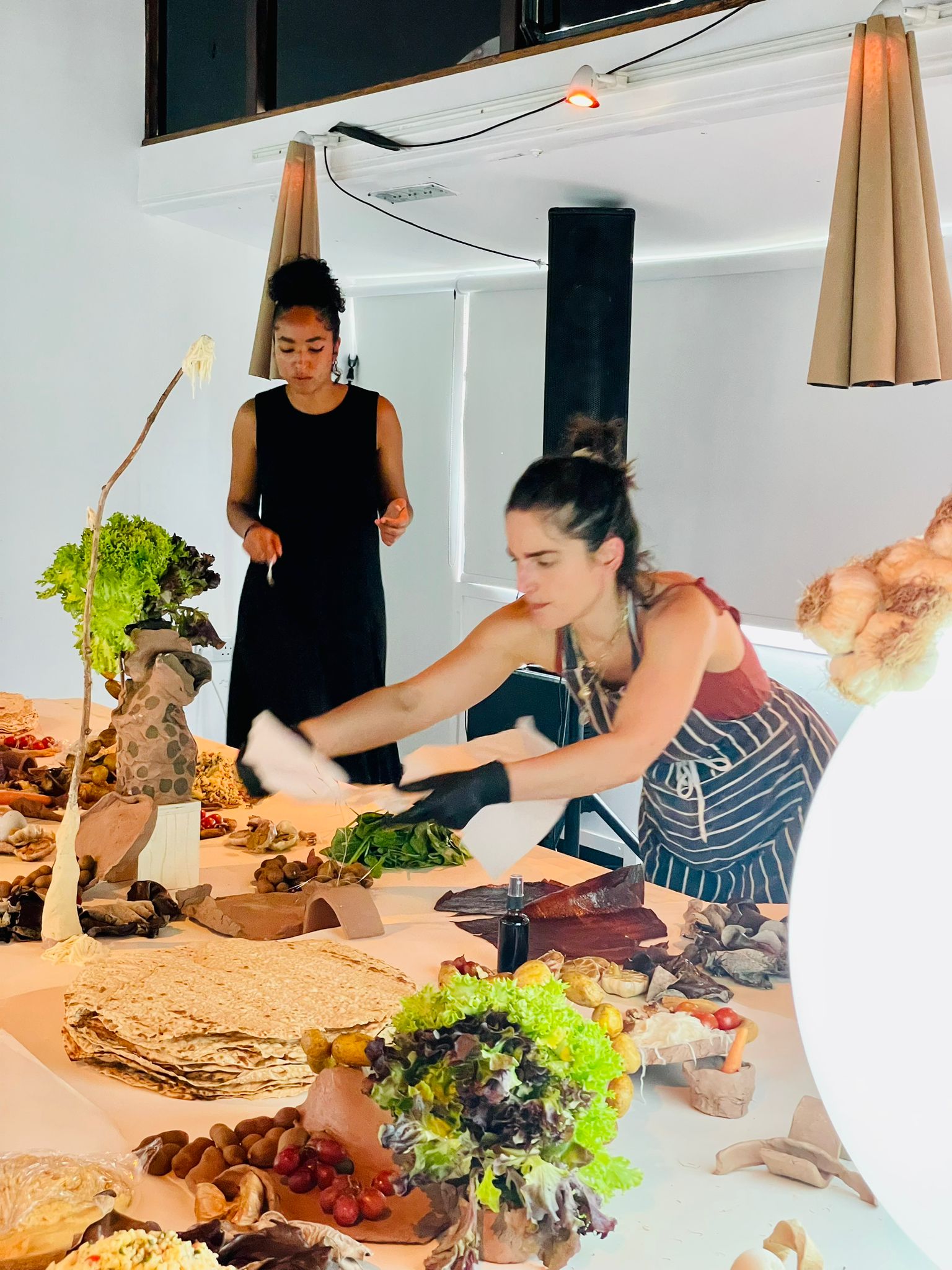
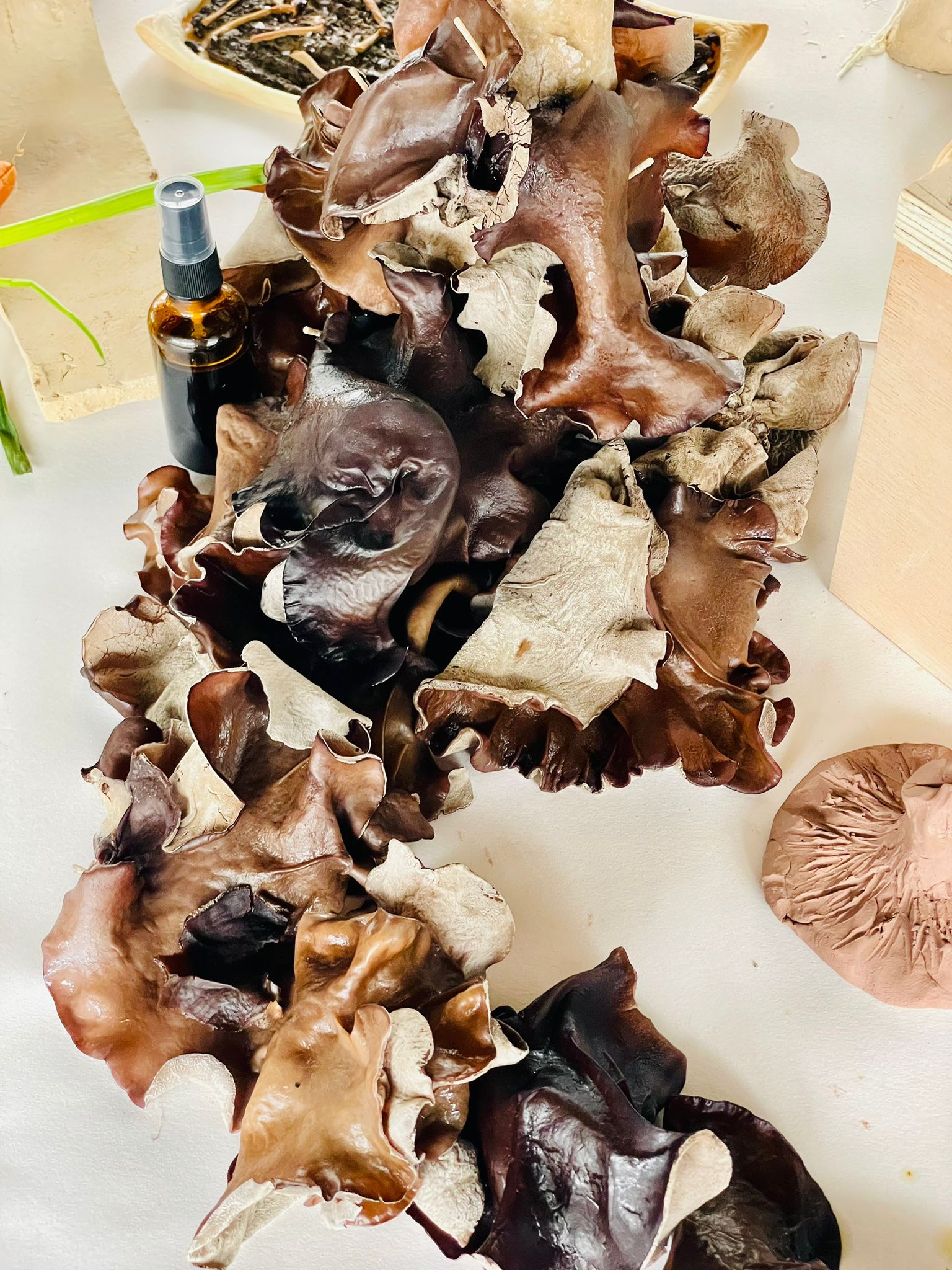
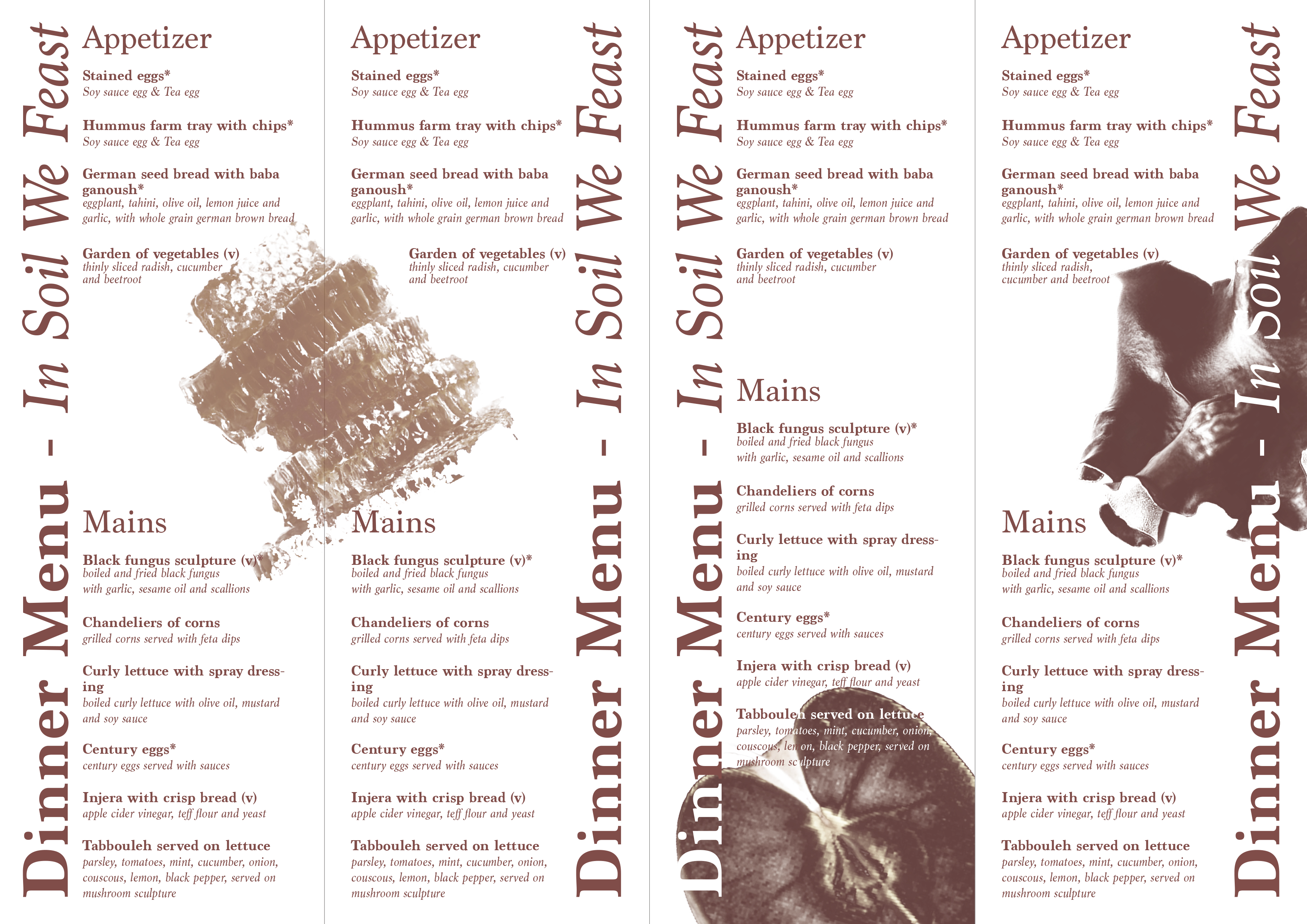
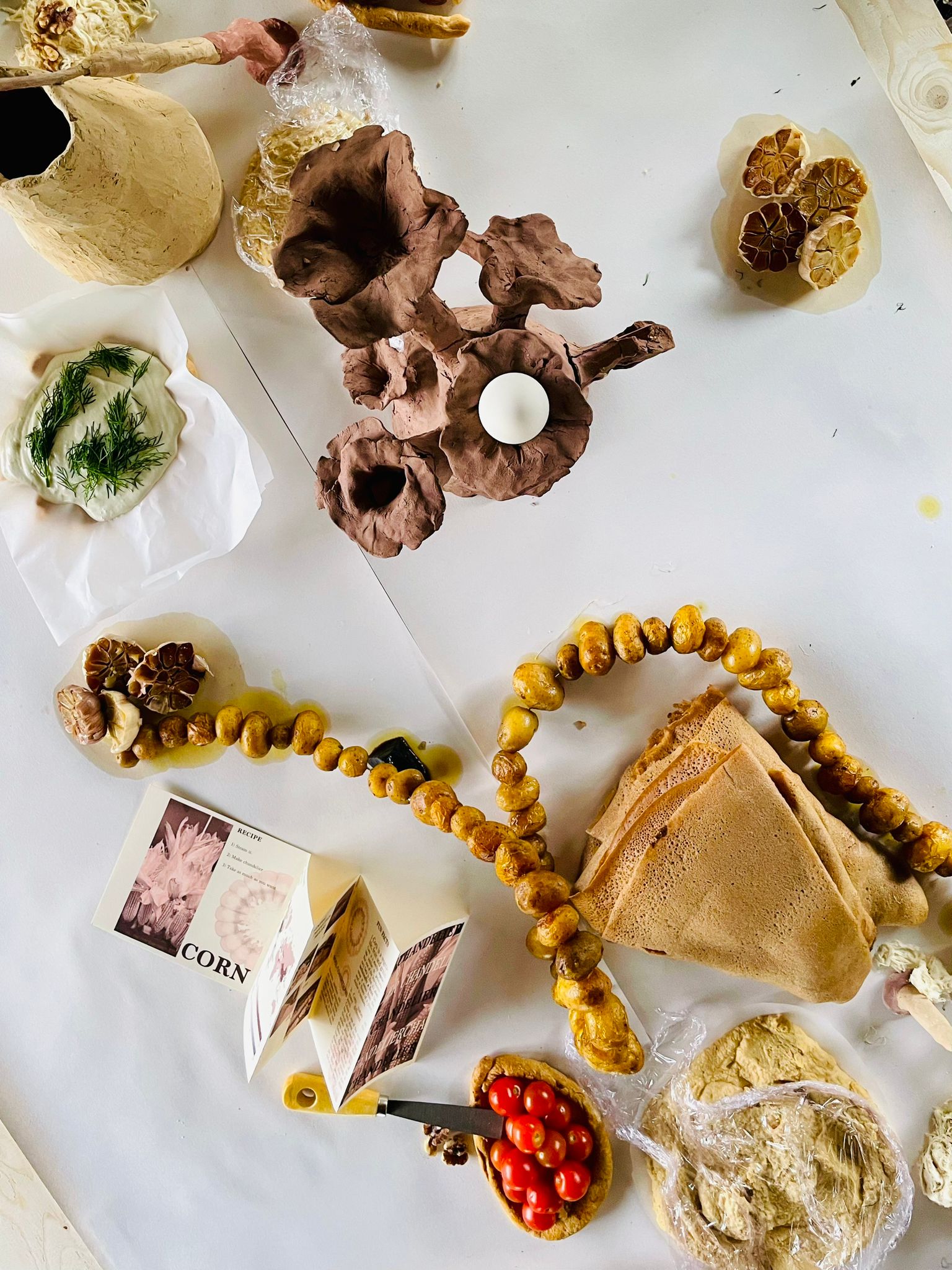
In the context of the Architectural Association Summer School 2023, the experimental unit Craving Earth traces the cultural, social and political presence of soil, from under our feet and into our bellies. On the ground, we explore the city of London through contemporary projects and realities which aim to reconnect us, and with us the land and its stories. From humans’ earliest ingestions to current trends, we seek to understand our interactions with soil, while investigating the methods used to obtain it, consume it, heal through it, transform it, grow and build with it.
Emma Kaufmann LaDuc is an interdisciplinary architect working within urban and rural territories. Her research seeks to both pluralize and localize spatial practice, thinking through resilient systems and acting through collaborative interventions. Emma is research assistant at the ETH Zurich under the Chair of Affective Architectures and the Chair of Being Alive and head of an experimental unit at the AA Summer School in London, as well as member of the interdisciplinary collective La Rivoluzione delle Seppie.
︎︎︎ Contact
From the centre to the margins of London, Craving Earth threads new ways for collective learning to (re)engage with ‘the making of life’ through soil. With this, we investigate, assimilate, and digest the knowledge embedded in the ground. We work with all stakeholders of the sites of Bedford Square and Poplar, both human and nonhuman, to reach a collective understanding of soil as a material that nurtures, that builds, that hosts. We aim to: learn from local ecosystems and the language of the commons; understand soil as a natural, reclaimed resource that belongs to the earth and is embedded in vernacular knowledge; explore the identity of a place as formed through everyday rituals, materials, objects and foods that are intrinsically connected to soil biologically, culturally, politically and socially; use the classroom as a space to explore conviviality and digestion through the study, understand and learn from the soil presence and from its use and application in different practices across the globe. We will work across scales to generate prototypes, strategies and happenings with the aim to share the knowledge gathered through convivial settings and edible performances.
Looking to the architect as the host and the enabler, we seek to nurture the agency of a place using design to discover forgotten practices, empower communities with new knowledge and foster a sense of belonging and integration. With collective action and participatory practice, we hope to create spaces where knowledge from the soil can be discovered and disseminated, towards resilient forms of living for all.
We design experimentally through critical curation, hands-on learning, situated interventions and performative acts. We begin with desktop research and on-site visits to gather insights into local opportunities, challenges, spaces and stakeholders. Charting a site according to a set of macro-subjects and questions, the students work collaboratively to produce a collective Soil Atlas.
Equipped with this preliminary research, the students define a common area of intervention and subject of focus to generate an artefact, a choreography, a situated drawing etc. Further research, tailored 1:1 prototypes, drawings, models and actions define the making and thinking process. In a moment of convergence, the field work informs a final discursive dinner and performance.
We ask students to challenge the conventional means and media within spatial practice (appropriated by architects, urbanists, artists, etc.) to initiate scenarios of change through conviviality, mutual respect, and collaboration. In turn, these actions will bring us back to the earth.
(From the brief)